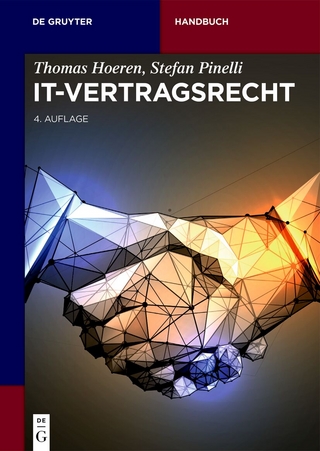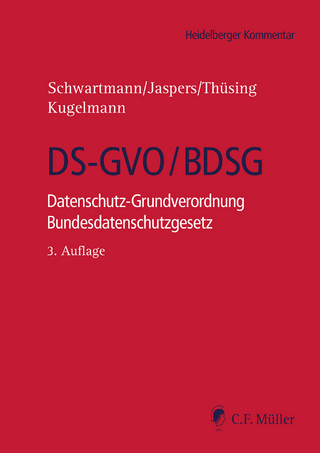
The Open World, Hackbacks and Global Justice
Seiten
2024
|
1st ed. 2023
Palgrave Macmillan (Verlag)
978-981-19-8134-0 (ISBN)
Palgrave Macmillan (Verlag)
978-981-19-8134-0 (ISBN)
Properly formulated, a capability-based defense of retaliatory hackbacks can minimize attribution and cyber-escalation risks, deter bad behavior by casual computer users, disingenuous security experts, big tech companies, criminals and rogue governments, and satisfy calls for more retributive and distributive justice in the ‘open world’.
This book explores the current impasse that global regulators face in the digital sphere. Computer technology has advanced human civilization tenfold, but the freedom to interact with others in cyberspace has made individuals, discrete communities, organizations and governments more vulnerable to abuse. In consequence, political decision-makers are seriously considering granting limited legal immunity to victims who decide to ‘hack- back.’ Many victims frustrated by the slow pace of law enforcement in cyberspace have chosen to ‘take the law into their own hands,’ retaliating against those who have stolen valuable data and damaged network operations. Political deliberations about limited immunity for hackbacks usually ignore global justice and moral justifications for ‘active defense’ policies. Typically, cyber security policies balance deterrence against two different understandings of morality and the ‘good life’ : fairness or welfare. This book proposes a third moral rationale for cyber security policies : capability theory, developed principally by Amartya Sen and Martha Nussbaum. Properly formulated, a capability-based defense of retaliatory hackbacks can minimize attribution and cyber-escalation risks, deter bad behavior by casual computer users, disingenuous security experts, big tech companies, criminals and rogue governments, and satisfy calls for more retributive and distributive justice in the ‘open world’. This book will appeal to legal theorists, political philosophers, social activists, investors, international relations scholars and businesspeople in the tech community.
This book explores the current impasse that global regulators face in the digital sphere. Computer technology has advanced human civilization tenfold, but the freedom to interact with others in cyberspace has made individuals, discrete communities, organizations and governments more vulnerable to abuse. In consequence, political decision-makers are seriously considering granting limited legal immunity to victims who decide to ‘hack- back.’ Many victims frustrated by the slow pace of law enforcement in cyberspace have chosen to ‘take the law into their own hands,’ retaliating against those who have stolen valuable data and damaged network operations. Political deliberations about limited immunity for hackbacks usually ignore global justice and moral justifications for ‘active defense’ policies. Typically, cyber security policies balance deterrence against two different understandings of morality and the ‘good life’ : fairness or welfare. This book proposes a third moral rationale for cyber security policies : capability theory, developed principally by Amartya Sen and Martha Nussbaum. Properly formulated, a capability-based defense of retaliatory hackbacks can minimize attribution and cyber-escalation risks, deter bad behavior by casual computer users, disingenuous security experts, big tech companies, criminals and rogue governments, and satisfy calls for more retributive and distributive justice in the ‘open world’. This book will appeal to legal theorists, political philosophers, social activists, investors, international relations scholars and businesspeople in the tech community.
A. Jean Thomas is a lawyer and former programmer who has taught at two law schools. She has a BA from Swarthmore College, JD from University of Connecticut Law School and LL.M and S.J.D. from Harvard Law School.
1. Introduction.- Part I. Open World Skepticism and Attainable Ends.- 2. The Open World Ethos.- 3. Skepticism, Self-Defense/Help and Global Justice.- 4. Capabilities, Entitlements and VRN.- 5. Aggravating Factors, Freedom and Retaliation.- Part II. Domestic and International Hack-Backs.- 6. Surveillance and Disruption.- 7. Exceeding Authorized Access Under the CFAA .- 8. Amplifying American Power in Cyberspace.- 9. Capabilities, Populism and Presidential Leadership.
| Erscheinungsdatum | 14.01.2024 |
|---|---|
| Zusatzinfo | 2 Illustrations, black and white; XV, 354 p. 2 illus. |
| Sprache | englisch |
| Maße | 148 x 210 mm |
| Themenwelt | Recht / Steuern ► EU / Internationales Recht |
| Recht / Steuern ► Privatrecht / Bürgerliches Recht ► IT-Recht | |
| Sozialwissenschaften ► Kommunikation / Medien ► Kommunikationswissenschaft | |
| Sozialwissenschaften ► Kommunikation / Medien ► Medienwissenschaft | |
| Sozialwissenschaften ► Politik / Verwaltung | |
| Sozialwissenschaften ► Soziologie | |
| Schlagworte | Global • Information • Justice • Open World • Organizations |
| ISBN-10 | 981-19-8134-5 / 9811981345 |
| ISBN-13 | 978-981-19-8134-0 / 9789811981340 |
| Zustand | Neuware |
| Informationen gemäß Produktsicherheitsverordnung (GPSR) | |
| Haben Sie eine Frage zum Produkt? |
Mehr entdecken
aus dem Bereich
aus dem Bereich
Telekommunikations- und Multimediarecht
Buch | Softcover (2024)
dtv Verlagsgesellschaft
CHF 38,95
Datenschutz-Grundverordnung Bundesdatenschutzgesetz
Buch | Hardcover (2024)
C.F. Müller (Verlag)
CHF 279,95


